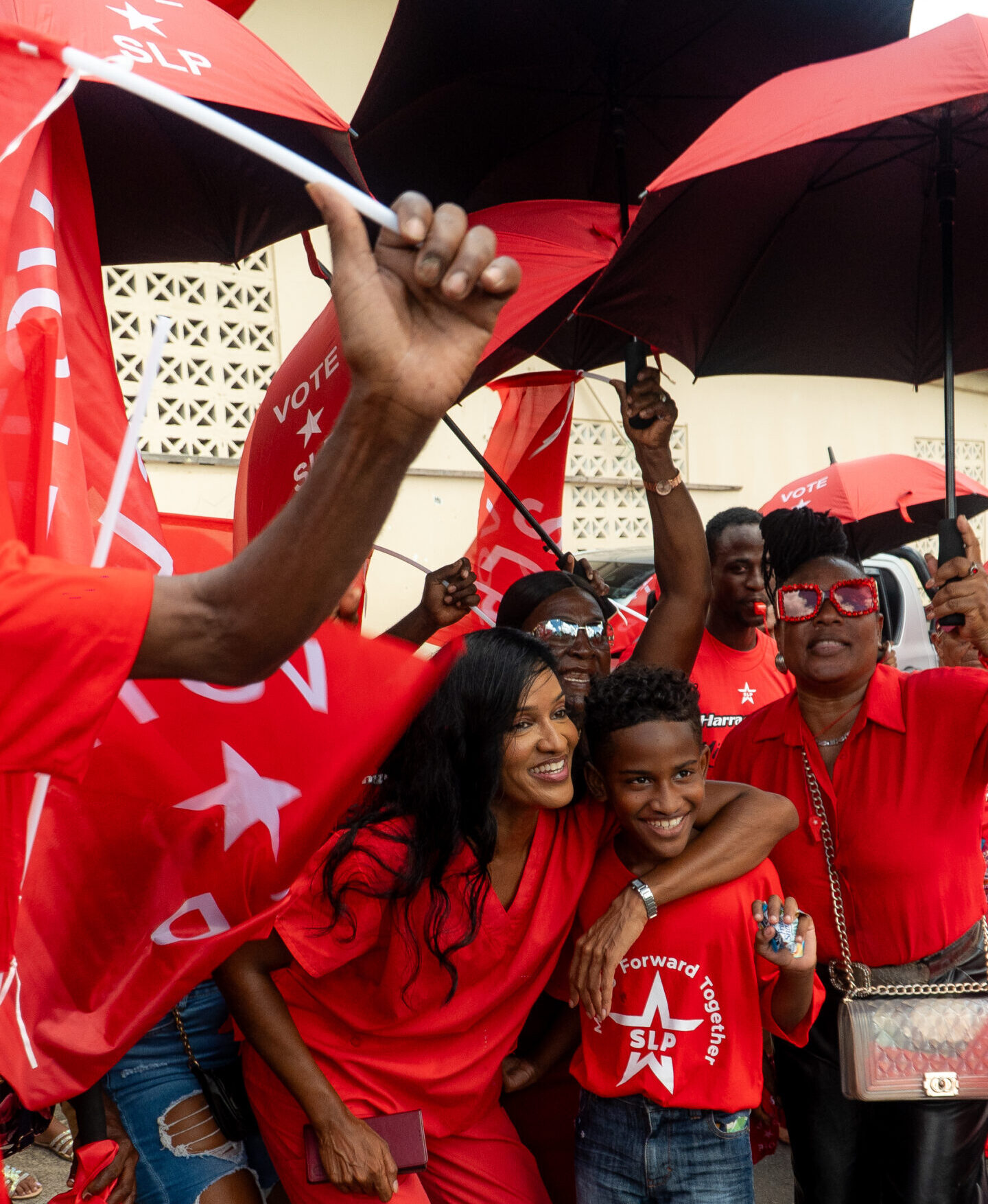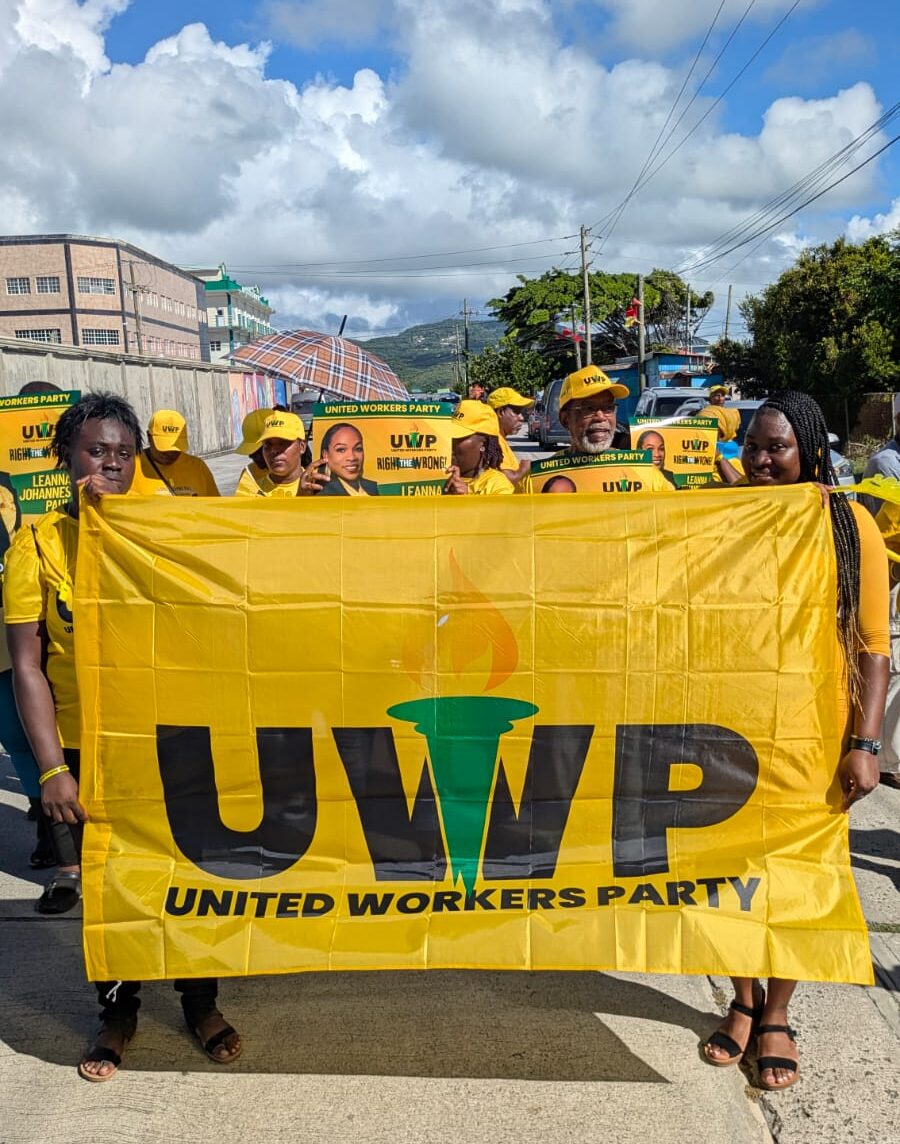As the campaign enters its final stretch, the national focus has begun to settle on several constituencies likely to shape the outcome of the December 1 general election. From Castries East and Micoud South, where both political leaders defend their seats, to Choiseul, Vieux Fort South, Dennery South and Soufriere, these races offer a first look at where the island’s political mood may be shifting.
The leaders
Castries East and Micoud South will be among the most closely watched races, with many seeing them as early indicators of how the country may swing on election night. Both Philip J. Pierre and Allen Chastanet face first-time candidates this year, adding a fresh dynamic to seats that usually anchor party stability. As Rhodes Scholar and St. Lucia Times contributor Rahym Augustin Joseph notes:
“I think obviously the seats of the political leaders are always important to watch, because if they individually cannot hold onto their seats, then it signals some major issues for their own future leadership prospects. Ordinarily, the first seat that should be counted should be the one of the leaders,” he said.

In Castries East, Pierre faces a political debutant in Peter Chiquot. Pierre has held the seat since 1997. Chiquot says he wants to serve “not for status or spotlight but because I believe our communities deserve better”.
Chastanet meets Shanda Lee Harracksingh, who carries the weight of contesting one of the UWP’s most historically secure seats. Micoud South has stayed yellow in every election except 1997. Harracksingh has built her platform around youth development, stronger support for farmers through agroprocessing, and upgrades to feeder roads. She has also questioned whether Chastanet has been a real representative for Micoud South, drawing clear lines between her vision and his record.
Choiseul: Flex vs Kiffo
Choiseul continues to take shape as one of this election’s more engaging races as both candidates “are loved by the people”, as one constituent put it.
Keithson ‘Kiffo’ Charles comes up against Bradley Felix, one of only two UWP candidates to win seats in the last election in 2021. He was first elected in 2016. For many residents, the issues remain the same: road upgrades, stronger community programmes, economic development and access to affordable housing.
Charles opened his campaign with a list of proposals, including a boardwalk along the Choiseul Village beach, a revival of cultural activities and targeted road rehabilitation. He also made early moves that caught public attention. He commissioned lights on the Delcer playing field, a long-standing request from the community, and through the prime minister he initiated works on the Park Estate road in Saltibus which was “long neglected”, according to residents.
Felix has recently countered with his own set of commitments. These include a youth investment programme aimed at “education, business and personal growth”, the creation of a Choiseul-Saltibus help centre to support residents with documentation, and a land development initiative focused on assisting “first-time land owners, young adults and single parents in acquiring residential lots”. He has also pledged to create a Choiseul-Salitbus Tourism Association tasked with developing at least 12 attractions in the constituency.
With both men now firmly in campaign mode, Felix appears to be rallying his base, while Charles continues to court voters eager for new energy and visible action.
Vieux Fort South: Fiery newcomer vs mainstream candidate
Vieux Fort South carries a different kind of weight this election cycle. With the exit of former prime minister Dr Kenny Anthony, the constituency is entering a period of transition. Augustin-Joseph points out that this change alone creates uncertainty over whether the seat remains secure for Labour or becomes newly competitive.
The race brings two contrasting political paths. Danny Butcher, though a first-time candidate, is no stranger to political work. He served as campaign manager for Anthony and has been involved in constituency activity for years. His campaign draws on energy and visibility as he attempts to step into the space left by a long-serving representative.

Leanna Johannes-Paul, more widely known as “Lady Lee”, a Vieux Fort native and radio personality, has built her message around being a fresh alternative for a constituency she says has “stagnated” under the SLP. Her local roots and media presence give her name recognition, but it remains to be seen whether that mainstream popularity will translate into votes on election day.
For residents, the key concerns are: job creation, neighbourhood safety and a long term economic plan that supports families and local businesses.
Dennery South: ‘Ben for the Den’ vs ‘Starbatch’
Dennery South, a contest that might have floated quietly under the radar, was thrust into the national spotlight recently when former MP and ex-UWP candidate for the area, Edmund Estephane, switched allegiance, endorsing the Labour Party and its candidate, Alfred Prospere.
Prospere enters the race with a record he has leaned on heavily. As minister for agriculture, he has focused on strengthening farmer support programmes, improving access to inputs, advancing food security projects and pushing for upgrades to local farms. Within the constituency, his tenure has included road improvement and community-centred projects. His message to voters focuses on steady, tangible development and continuity.
UWP newcomer Benson Emile argues that the constituency needs a faster pace of work, more direct opportunities for young people and a stronger push to bolster agriculture. Emile, who served as a public servant under the Chastanet administration, has framed his campaign around youth empowerment and modernising community infrastructure.
Augustin-Joseph notes, however, that the shifts in political allegiance could matter here too. The defection of Edmund Estephane and his brother, former UWP Chairman Andy Daniel, introduces added uncertainty in what has been a marginal seat over several cycles.
Soufriere: ‘Aunty Emma’ vs ‘proven performer’
Soufriere enters the campaign trail as a rematch that may again prove tight. Emma Hippolyte faces former MP Herod Stanislas, setting the stage for another competitive showdown.
Hippolyte’s work in the constituency has centred on tourism planning, support for families and human resource development. As commerce minister, she has played key roles in the removal of VAT on household items and building materials, the introduction of price controls on sanitary napkins and efforts to strengthen linkages between local businesses and tourism operators. Her message to voters has focused on stability, social protection and the continued upgrading of the constituency.
Stanislas, who served from 2016 to 2021, calls that period one of “Soufriere’s most transformational”. His tenure saw the development of the Beach Park, a new bus terminal, upgrades to the farmers’ market and the construction of the Soufriere mini stadium. Campaigning this cycle under the banner of “proven performer”, he has emphasised stalled projects and the need for stronger support for small businesses and local services.
Given Soufriere’s heavy dependence on tourism, both candidates have framed their campaigns around economic stability and long-term planning.
The deciding factors
While each constituency has its own identity and political history, the issues shaping voter decisions this cycle carry clear threads across the island. As Rahym Augustin Joseph explains:
“Basic infrastructure, improvement in their quality of life in the constituency for themselves and their children, farmers’ assistance, education, cost of living, community development programmes for certain groups in the constituency will all be issues that will matter to them.”
Across Choiseul, Dennery South, Soufriere, and Vieux Fort South, these concerns form the backdrop to every campaign launch, community meeting and house visit. Voters speak often about roads that need fixing, affordable food prices, sustainable economic development and a desire for regular community programmes, not only during an election season.
Beyond the constituency-level issues, many residents are weighing leadership. They are assessing which party, and which representative, they believe can deliver practical improvements in their daily lives while steering the country toward steady long term development. Those judgements will ultimately shape the results on December 1.




